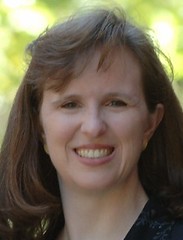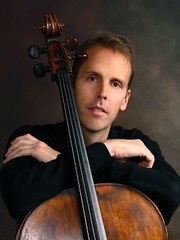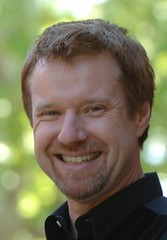PROGRAM SELECTIONS
Larry Farrow
Traditional German, arranged by Robert Swift
Franz Schubert
* Franz Schubert
* Robert Schumann
* John Rutter
Or Get a free eCard here!
The eCard allows anyone access to our online services!
Traditional American, arranged by John Horman
Lloyd Pfautsch
Traditional Sea Chantey, arranged for Treble Voices by Emily Crocker
John Rutter
The Jacksonville Masterworks Chorale are ...
| Sopranos | Altos |
| Tenors | Basses |
The JMC's Artistic Director since 2002, Florida native Dr. Mark Stallings holds a Bachelor’s degree in Music Education from the University of Miami, a Masters of Education from Florida Atlantic University, and a Doctorate of Musical Arts from the University of Miami. As a music educator Dr. Stallings has worked in both public schools and universities, including serving as Director of Choral Activities at the University of Central Florida. Mark’s heart is in music ministry, having served churches in Amarillo, Texas, and across Florida in Stuart, Lighthouse Point, Winter Park, and in Orange Park for the past nine years. He was the Northwest Texas Conference Chairperson of the Chorister’s Guild and is Past President of the Florida Chapter of the Fellowship of United Methodists in Music and Worship Arts. Dr. Stallings is listed in the Outstanding Young Men of America and Who’s Who in Religion, and his elected memberships in leadership and honor societies include Phi Kappa Phi, Omicron Delta Kappa and Pi Kappa Lambda.
Collaborating on piano is Ted Munn, Director of Music Ministries at Avondale United Methodist Church. Ted received a BA in languages and international trade from Clemson University and a Master of Music in Choral Conducting and Sacred Music from Westminster Choir College in Princeton, New Jersey. The multi-talented JCM alto Joanne Liberty lends the extra pair of hands for selections with four-handed accompaniments.
Program Notes by Edward Lein, Music Librarian
The versatile performer, arranger, conductor and composer Larry Farrow, an Associate Professor of Jazz and Contemporary Media at Florida State University, has worked in radio, film, television and the recording studio, and has collaborated with with such diverse musicians as Ann Margaret, Gladys Night, The Jacksons, Harry Belafonte, Aretha Franklin and Peter Nero. Well known for his choral pieces, Farrow's Doodlin' dates from 1982, and its playful interplay draws on the composer's jazz background.
Holding both Masters and Doctoral degrees from the Eastman School of Music, organist, conductor, composer and arranger Robert F. Swift has taught music to students ranging from 3rd graders to graduate students, with appointments at Ithaca College, Eastman, Memphis State University and Plymouth State University. Using parallel texts in the original German and in English, Swift's lively adaptation of the folk song Die Musici ("Music Shall Live") has remained a favorite of choristers of all ages since first introduced in 1981, and its 3/4 time and piano duet accompaniment perhaps bring to mind the Liebeslieder Waltzes of Brahms.
In addition to numerous symphonies, chamber works, masses, and solo piano music, the Austrian composer Franz Schubert (1797-1828) composed over 600 songs in his short life, and he has remained unsurpassed in his ability to marry poetry with music. His music was regularly performed in private concerts for Vienna’s musical elite and his genius was touted by no less than Beethoven, but Schubert was never able to secure a publisher for the bulk of his masterworks so he depended on his devoted circle of friends for maintaining his finances. Among his friends was soprano and voice teacher Anna Fröhlich, for whom he wrote several of his partsongs, and it was principally with her and her three singing sisters in mind that Schubert wrote Mirjams Siegesgesang, D. 942. Although the cantata for soprano solo, mixed voices, and piano was not published until more than a decade after the composer's death, the piece was first performed on January 30, 1829, at a Schubert memorial concert organized by Anna Fröhlich.
The English version sung today is based on the original German text by Austria's greatest playwright, Franz Grillparzer (1791-1872).
| Strike your timbrels, Hebrew maidens, Miriam bids upraise the lay; Mighty is the Lord at all times, Mightier hail we Him today. Out of Egypt, as a shepherd Guards his flock and shows the way, Thou hast led Thy chosen people, Fire by night and cloud by day. Shepherd! Thou hast led us onward; Strong Thine arm and keen Thine eye; At Thy word the sea obedient Parts and leaves a pathway dry. At Thy blast the floods congealing, Stand upright as crystal walls; Thro’ the sea’s heart pass we dry-shod, Trusting in Thy voice which calls. As we pass the sky grows darker, Voices shout, “We will pursue!” Armour gleaming, trumpets clanging, Pharaoh’s host bursts on the view. Lord of hosts, this hour we perish: Help us, Lord our rock prove true. | Voices shout, still pressing onward, ”We will pursue and overtake.” But Hark! What sighings! Wailings! Moanings! Cursings! Hark! the storm! Tis the Lord in all His fury. Headlong rush the pent-up waves. Pharaoh’s chariots! Horse and rider! Mighty waters overwhelm them. Fearfulness and dread upon them fall: By darkness and horror are they smitten: Drown’d the captains and drown’d the host. Egypt’s king! as lead sinks he down beneath The mighty flood. Earth has swallowed all. God no more her tide restraining, All her shores the sea regaining, Ne’er restoreth king or slave--- Her sad waste at once both shroud and grave. |
The hopes of the great German Romantic composer Robert Schumann (1810-1856) to become a concert pianist were dashed in his early twenties when he permanently injured his hand, so he redirected his energies to both composing and music criticism. From childhood he was torn between literature and music, but he managed to combine these two loves even in some of his purely instrumental music by using poetry and dramatic narrative to color and direct the musical discourse. The four-part Zigeunerleben dates from 1840, Schumann's "Year of Song" which also saw the creation of Dichterliebe, Frauenliebe und -leben, and the his two other Liederkreis. It is composed on a text depicting a Romantic notion of Gypsy Life written especially for Schumann by the popular German poet Emanuel Geibel (1815-1884), and during the composer's lifetime the colorful work (which includes optional percussion parts) became one of his most popular pieces.
Im Schatten des Waldes, im Buchengezweig da regt's sich und raschelt und flüstert zugleich. Es flackern die Flammen, es gaukelt der Schein um bunte Gestalten, um Laub und Gestein. Das ist der Zigeuner bewegte Schar mit blitzendem Aug' und wallendem Haar, gesäugt an des Niles geheiligter Flut, gebräunt von Hispaniens südlicher Glut. Um's lodernde Feuer in schwellendem Grün da lagern die Männer verwildert und kühn, da kauern die Weiber und rüsten das Mahl und füllen geschäftig den alten Pokal. Und Sagen und Lieder ertönen im Rund, wie Spaniens Gärten so blühend und bunt, und magische Sprüche für Not und Gefahr verkündet die Alte der horchenden Schar. Schwarzäugige Mädchen beginnen den Tanz, da sprühen die Fackeln in rötlichem Glanz, es lockt die Gitarre, die Cymbel klingt, wie wild und wilder der Reigen sich schwingt. Dann ruh'n sie ermüdet vom nächtlichen Reih'n; es rauschen die Buchen in Schlummer sie ein. Und die aus der glücklichen Heimat verbannt, sie schauen im Träume das glückliche Land. Doch wie nun im Osten der Morgen erwacht, verlöschen die schönen Gebilde der Nacht; es scharret das Maultier bei Tagesbeginn, fort zieh'n die Gestalten, wer sagt dir, wohin? | In the shadows of the forest, among the beechtrees, something moves and rustles and whispers all at once. Flames are flickering, their glow dances Around colorful figures, around leaves and rocks: It is the roaming band of gypsies With flashing eyes and waving hair, weaned on the holy waters of the Nile, tanned by Spain's scorching sun. Around the fire in the swelling green forest Wild and bold men are resting, women squat to prepare the meal, and busily fill ancient goblets. And tales and songs resound all around, of how Spanish gardens are so full of bloom and color; and words of magic to ward off need and danger the wise old woman recites for the listening crowd. Dark-eyed girls begin their dance While torches flicker in redish glow; The guitar casts its lure and the cymbal sounds; The dance grows wild and wilder. Then they rest, weary from the night of dance, and the beeches rustle them to sleep. And, banned as they are from their blissful homeland, they see it in their dreams, that happy land. But now, when the morning awakes in the east, so vanish the beautiful visions of the night; at daybreak the mules paw the ground, the figures move away-who knows where |
The titular "gourd" in the powerful Underground Railroad song Follow the Drinking Gourd refers to the Big Dipper constellation that helped point the way North to freedom for 19th-Century slaves escaping from Southern plantations. Composer and arranger John D. Horman (b. 1946), a music educator for 26 years before his retirement last year, is the Director of Music at Warner Memorial Presbyterian Church in Silver Spring, Maryland, and has published over 150 pieces for choruses of all ages.
Lloyd Pfautsch (1921-2003) was the founder of the Dallas Civic Chorus, a longtime professor of sacred music and director of choral activities at Southern Methodist University, a gifted baritone soloist, and a widely performed composer, especially of sacred choral music. His decidedly secular Songs Mein Grossmama Sang offer a humorous parody of Brahms' Liebeslieder Waltzes while retelling popular nursery rhymes. Culled from author David Morrah's 1953 collection, Fraulein Bo-Peepen, and More Tales Mein Grossfader Told, the text's bilingual mix does for German what Miss Piggy did for French.
Before becoming Vice President of Choral Publications for Hal Leonard Corporation in Milwaukee in 1989, Texas native Emily Crocker taught for 15 years in her home state. Continuing her award-winning work with youngsters, she founded the Milwaukee Children's Choir in 1994, and as an internationally performed composer she began winning ASCAP awards in 1986. The Drunken Sailor, Crocker's arrangement of the popular sea chantey (or "shanty") for treble voices with optional piano, dates back to 1980, and offers advice in addressing the age-old problem of inebriated mariners, by dawn's early light.
Identified by BBC Music Magazine as "the most successful and well-known composer of choral music in recent British history," London-born John Rutter (b. 1945) is co-editor (with Sir David Wilcox) of the highly popular Carols for Choirs anthologies, and now divides most of his time between composing, conducting and lecturing. Rutter's eclectic style combines the harmonic language of early 20th Century British and French liturgical music with the tunefulness of popular song, creating a winning blend that has made works such as his Gloria (1976), Requiem (1985) and Magnificat (1990) among the most frequently performed works of any composer of his generation. Based on an 1898 children's tale by Kenneth Grahame (1859-1932) and with lyrics by David Grant, Rutter's musical fable The Reluctant Dragon was originally written for peformance by Britain's famous King's Singers and the City of London Sinfonia. Coming just before the fable's finale, the amusing Banquet Fugue is a lively show-stopper that might easily serve as a theme song for Top Chef!








